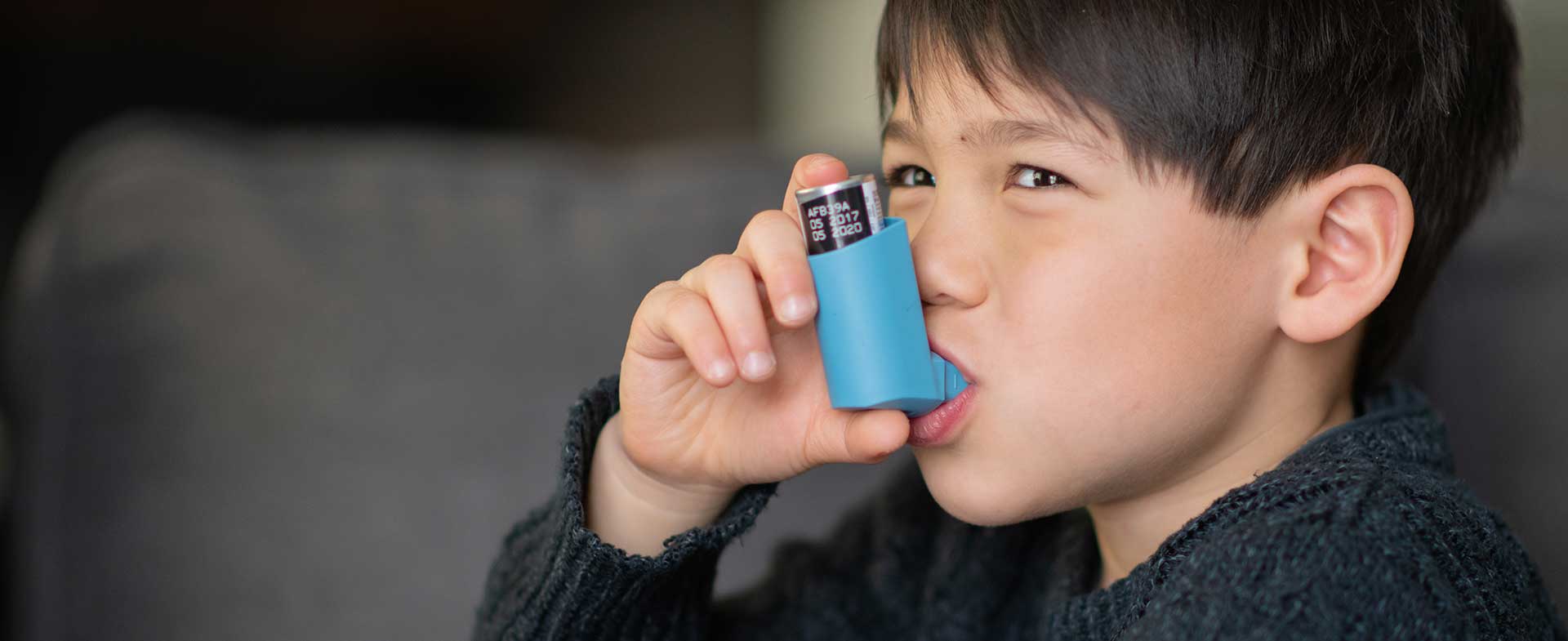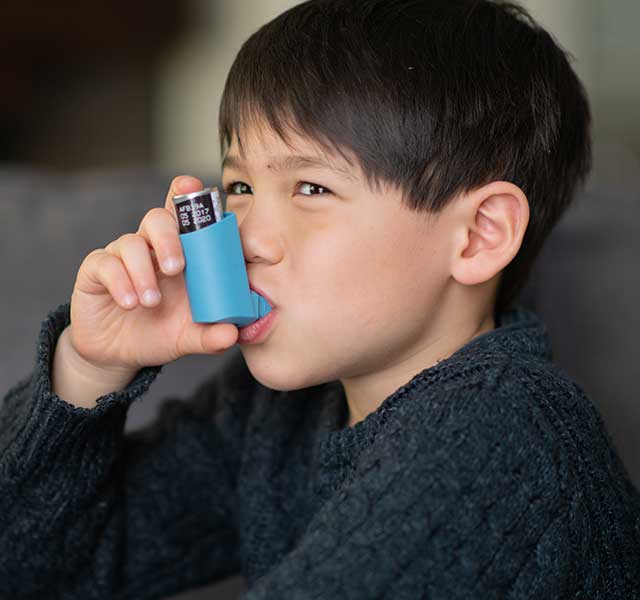Weather changes are a common cause of asthma flares in kids. For some, the increased pollen of spring can trigger asthma attacks. For others, the dry, cold weather of fall and winter can worsen asthma, says Laith Al Ejeilat, M.D., a pediatrician at Henry Ford Health.
Factors that can contribute to asthma attacks in the fall and winter include:
- Playing outside in the cold. Not only can exercise induce an asthma attack, but cold air itself is also a trigger.
- Viral infections. Cooler temperatures, indoor activities and crowded spaces make viral infections like the flu, COVID and RSV spread more easily.
- Dust and other particles cling to heavier winter fabrics and can bring on an attack.
- Indoor heating systems, which produce asthma-triggering materials.
How To Manage Asthma During The Fall And Winter
Schedule an early autumn asthma appointment with your pediatrician. “Be proactive to ensure you have the supplies you need,” says Dr. Al Ejeilat. “You don’t want to wait until it’s an emergency.”
Your pediatrician will refill prescriptions for your child’s steroid inhaler, which keeps the airways calm to prevent an asthmatic episode, along with their albuterol inhaler, which relieves symptoms during an asthmatic episode. They’ll also ensure you know how to use the inhalers and what to do in the event of an asthma attack.
Here, additional ways to prepare for asthmatic episodes during the cold weather:

Need A Pediatrician?
- Make sure you have two albuterol inhalers on hand. Keep one at home and one for on-the-go use (at school, playdates, etc.).
- Get a spacer for your child’s albuterol inhaler. A spacer is a plastic tube that connects the inhaler to your child’s mouth and helps to increase its effectiveness.
- Have your child use their steroid inhaler daily when the weather gets cold. This can help prevent asthmatic episodes if your child is susceptible to them during the fall and winter.
- Have your child use their albuterol inhaler ten to 20 minutes before running around outside. Doing so can prevent exercise-induced asthma attacks.
- Ask your doctor for an asthma action plan. This plan lays out what to do in case of an asthma attack. Keep one copy with your child and one at home.
- Ensure the whole family is vaccinated. If everyone in the family is vaccinated against the flu and COVID, the less likely it is that transmission will occur within your household—and your child will have a better chance of getting through respiratory virus season without severe infection. There’s also a new vaccine to prevent RSV, which is for pregnant women (it protects infants against RSV after they’re born) and a new RSV antibody therapy for babies under eight months old, or babies under 19 months who are at increased risk for severe disease.
How To Recognize An Asthmatic Episode
Symptoms of an asthma attack include:
- Coughing, especially at night or after laughing, running or talking
- Wheezing
- Making an increased effort to breathe, or moving the whole body to breathe
- Being unable to finish sentences without coughing or taking a breath
If your child is struggling to breathe, go to the ER immediately. If they are coughing, give them their albuterol inhaler. If symptoms are worsening with the inhaler, go to the ER.
“There are multiple weapons in our arsenal against asthma,” says Dr. Al Ejeilat. “The first is the albuterol inhaler. If your child needs to use it too often—sooner than four hours after the previous time they used it—go to the ER. The hospital can offer more effective treatments to end the asthma attack before it threatens your child’s lungs.”
And if your child has never had an asthmatic episode but has a family history of asthma, be on the lookout for the above symptoms. “Know that it can be brought on by a viral infection like the flu or even a common cold,” says Dr. Al Ejeilat. “Some kids develop asthma at one or two years old while others develop it much later.”
Reviewed by Laith Al Ejeilat, M.D., a board-certified pediatrician and member of the American Academy of Pediatrics who sees patients at Henry Ford Medical Center – New Center One.


